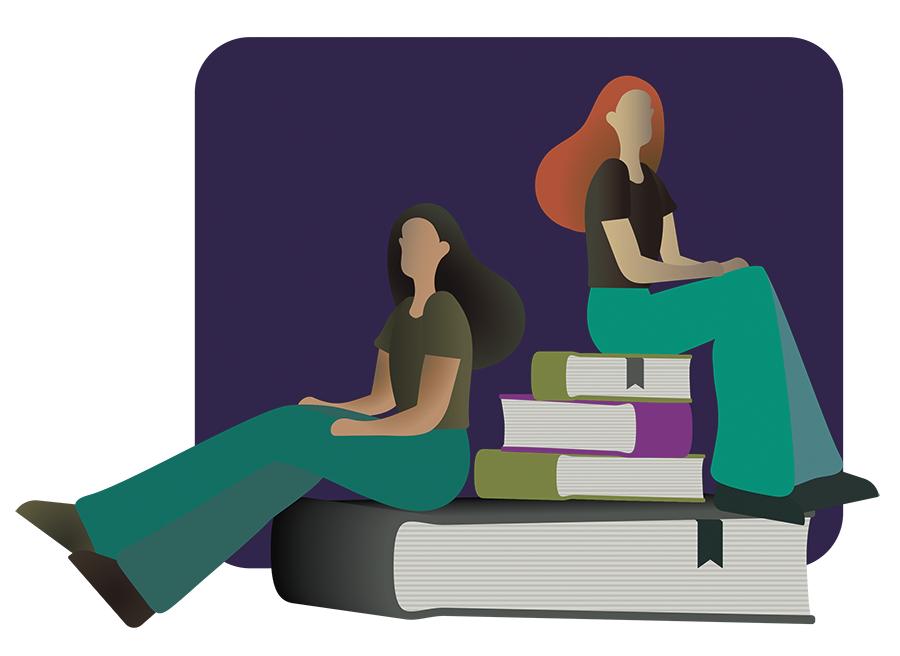‘Crime and Punishment’ is about the power of belief
December 5, 2017
Fyodor Dostoevsky is one of the world’s most influential writers to date. He was born in the early nineteenth century, and acclaimed quite a bit of literary success towards the end of his life. Dostoevsky’s writings are popular because of their gruesome and, often times, brutal depictions of the human condition; some of his most notable works include “The Brother’s Karamazov”, “The Idiot”, and most famously, and most-likely familiar, “Crime and Punishment”.
“Crime and Punishment” was published in the 1860s and tells the story of a thoughtful and intelligent college student, Raskolnikov, otherwise known as Rodia, living in St. Petersburg during late nineteenth-century Russia. Rodia is extremely poor, he can’t pay for school and ends up dropping out, he can’t pay his rent, and to top it off, his sister is marrying someone she really doesn’t want to in order to feed her family. Now, the thing about Raskolnikov, is that he’s an extremely smart, and capable individual, he’s trying to find some kind of solution for the complete mess that his life is in, and it just so happens that there’s one particular mean and nasty business woman in St. Petersburg, who nobody really likes. She takes complete advantage of economic distress, and she happens to have cash literally spilling out of her drawers.
Raskolnikov decides to kill this woman because, “What right does she have to prey off of the suffering of others?” There are a hundred other things that money could be used for, it could be distributed according to everybody’s needs, and it could take care of all Raskolnikov’s troubles, therefore, the benefits outweigh the crime. But, in the process of executing his plan, Raskolnikov ends up committing another murder, an innocent bystander.
Obviously, that’s some intense subject matter, but the genius of “Crime and Punishment”, comes from Fyodor Dostoevsky’s amazingly accurate psychological depiction of Raskolnikov’s motives, and the consequences he endures.
Raskolnikov is given every reason he could possibly need to commit the crime, and he’s also completely convinced that some people are born extraordinary, and that those people are capable of crossing over certain moral boundaries, that regular people, just wouldn’t be able to consider; think Napoleon or Julius Caesar. As intelligent, and capable, as Raskolnikov is, he’s also very arrogant, and narcissistic, so he doesn’t quite understand nearly as much as he thinks.
After Raskolnikov commits his murders, Dostoevsky uses the next 300 pages to outline Raskolnikov’s descent into madness, and psychological deterioration. Raskolnikov, pretty much immediately, starts regretting his decision and feeling guilt. He starts to have nightmares, he becomes ill, and worst of all, he becomes alienated from all the people that he knows.
Raskolnikov encounters a pretty serious crisis of belief. He’s completely torn between his extraordinary ambitions, and his unrelenting-repressed guilt. His entire structure of belief has been undermined, and is now without purpose, and meaning. Raskolnikov refuses to accept that he isn’t extraordinary, but he knows that any extraordinary person wouldn’t doubt their extraordinariness, and he digs himself deeper into delusions and paranoia. In the end, Raskolnikov accepts his transgressions, turns himself in, and spiritually atones for his crimes in prison.
“Crime and Punishment” is ultimately about the power of belief. If there’s anything to learn from this book, it’s that human beings are capable of rationalizing anything they need to.
Normal people don’t try and rationalize murder, but that’s not the point Dostoevsky is making, it’s not that obvious. It’s extremely important to recognize how our beliefs are formed, and how much we, ourselves, inform those beliefs, based on our own personalities. Raskolnikov is someone who had a lot of trouble relating to people and was just trying to find a way out of his own sufferings. It’s no surprise he felt his talents were being wasted, or that he thought he was better than others, but it’s also no surprise that he psychologically crumbled when those beliefs were tested.































